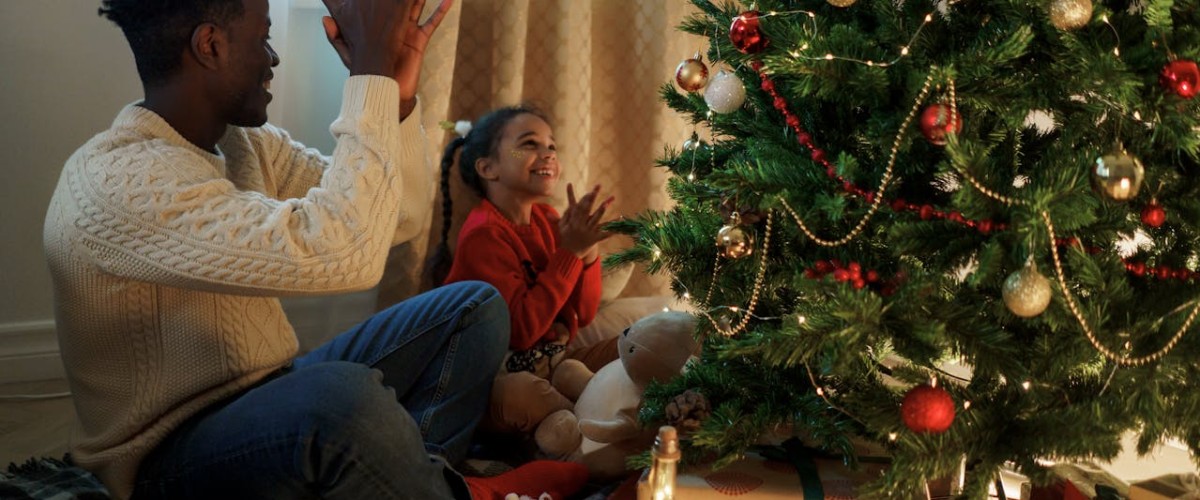December is a month filled with joy, festivities, friends, family gatherings, memories, and even sadness. For individuals and families dealing with substance use disorder and or mental health concerns, the holiday season can bring unique challenges. In this blog post, we will explore how to navigate the upcoming holidays while supporting your loved one with substance use disorder, mental health concerns or both, (also called co-occurring disorders.) While also setting some boundaries to ensure a healthy and peaceful environment.
Prioritize Self-Care:
During the holiday season, it is seriously important to prioritize self-care for yourself and your loved one. Take time for relaxation, engage in activities that bring you joy or activities that make you laugh. Maybe stop writing Christmas Cards because it totally stresses you out. Or write Christmas Cards because you love doing so! Practice stress-reducing techniques such as mindfulness, exercise or setting your timer for 5 minutes and dancing your ass off. Say no to events you really do not want to attend. Encourage your loved one to do the same while emphasizing the importance of self-care in their recovery journey in a way that is helpful and NOT forceful.
Communicate Openly:
Maintain calm, open and honest communication with your loved one about their needs and concerns during the holiday season. Discuss potential triggers and stressors such as people, places and things. Work together to develop effective strategies for managing triggers and stressors. Encourage your loved one to express their feelings and concerns about upcoming events. Since this is a dialogue you want to start with your loved one, please listen without judgment; and make sure your responses are solution based, not based on your emotions. Remember, our ideas for success, are not the only ideas that our loved ones have to adhere to or are essential to follow in order for our loved ones to have success. Invite in their ideas. For example, when we invite ideas in maybe our loved ones will share with us that they can only be at an event for 2 hours not the full 4 hours.
Set Boundaries:
Establish clear boundaries to protect your own well-being and also to support your loved one’s recovery. Communicate your ideas regarding substance use, parties, or events that may be triggering to your loved one. Be kind and firm in setting boundaries that align with your values and the needs of your family. Remember, setting boundaries is an act of self-care and promotes a healthier environment for everyone involved. This way there is not guessing or mind reading. For example you can say something like (before you go to an event); I would like to share with you that as soon as coffee is about to be served I would like to leave my Mother’s house to head home. Or, I would like to leave your Aunt’s house by 8, this way I can be home by 8:30, whether or not we have dessert by that time. Or, I am going to take an Uber to and from my Aunt’s house this year, I would like for you to join me in doing so.
Say No to Unhealthy Influences:
Be prepared to say no to invitations or events that may not be helpful to your Loved One’s recovery. Prioritize their well-being and consider alternative ways to celebrate the holidays that are supportive and where substances are down played. Our actions matter too. Surround yourselves with positive influences. Engage in activities that promote connection and fun without compromising their recovery. That does include not being around someone you love dearly because they will be constantly saying things like, “let’s go to the bar” during hangout time.
Seek Support:
Reach out for support from professionals, support groups, or therapists who specialize in substance use disorder and or mental health concerns. The type of help that comes to mind are: CRAFT Therapists, The Invitation To Change Approach by CMC, SMART Recovery and Moderation.org. Maybe try attending meetings or counseling sessions together as a way to strengthen your support network and gain valuable insights. Remember, you don’t have to navigate the challenges alone, and seeking support is a sign of strength. Also a great form of self-care!
Focus on Meaningful Connections:
Focus on the importance of spending quality time together, engaging in activities that promote bonding and create lasting memories. Encourage your loved one to connect with supportive friends or attend recovery-focused events to foster a sense of community. You can try new things to see if you like them or not. Or see if they want to make a list of new things to do for this year’s holiday season. For example, maybe you can think of 3 things, then your Loved One can think of 3 things, making 6 new things to try this year!
Embrace Flexibility:
Recognize that the holiday season may not go exactly as planned. This happens quite often actually. We don’t like when things don’t go according to plan. It might be upsetting, sad or a whole list of added emotions. Embrace flexibility and be prepared to adapt to unexpected situations. Focus on the present moment and the joy that can be found in the simple pleasures of the season. Yes, this can be very hard to do. I want to really acknowledge that trying to manage our own thoughts, feelings and behaviors is hard work. I do feel it is well worth it, to manage our thoughts, feelings and behaviors, after all we are asking our Loved Ones to do the same.
Navigating the holiday season while supporting your loved one with any type of addiction disorder and/or mental health concerns, requires compassion, open communication, and setting boundaries. By prioritizing self-care, saying no to unhealthy influences, seeking support, and focusing on meaningful connections, you can create a holiday season that promotes healing, joy, and recovery.
Remember, the holidays can be an opportunity to strengthen your bond and celebrate the progress made on the journey to wellness. We can celebrate even when there is not 100% recovery present, remember to celebrate all wins no matter how big or small. We have the power of choice. I always say, “We can choose to take out our magnifying glasses and look for the wins!” Here, I will say, “Take out our magnifying glasses and look for the things to celebrate” (:
Finding peace amidst challenging times is possible with the right strategies, support, and a commitment to self-care. Ever think about a Coach to help with this process? Need additional guidance? Text me! I’m here to support you every step of the way.
Text me at 516-984-3756 or click the button below.
Wishing you well always..
Peace, Love, & Tapping,
Cassandra Toppi

